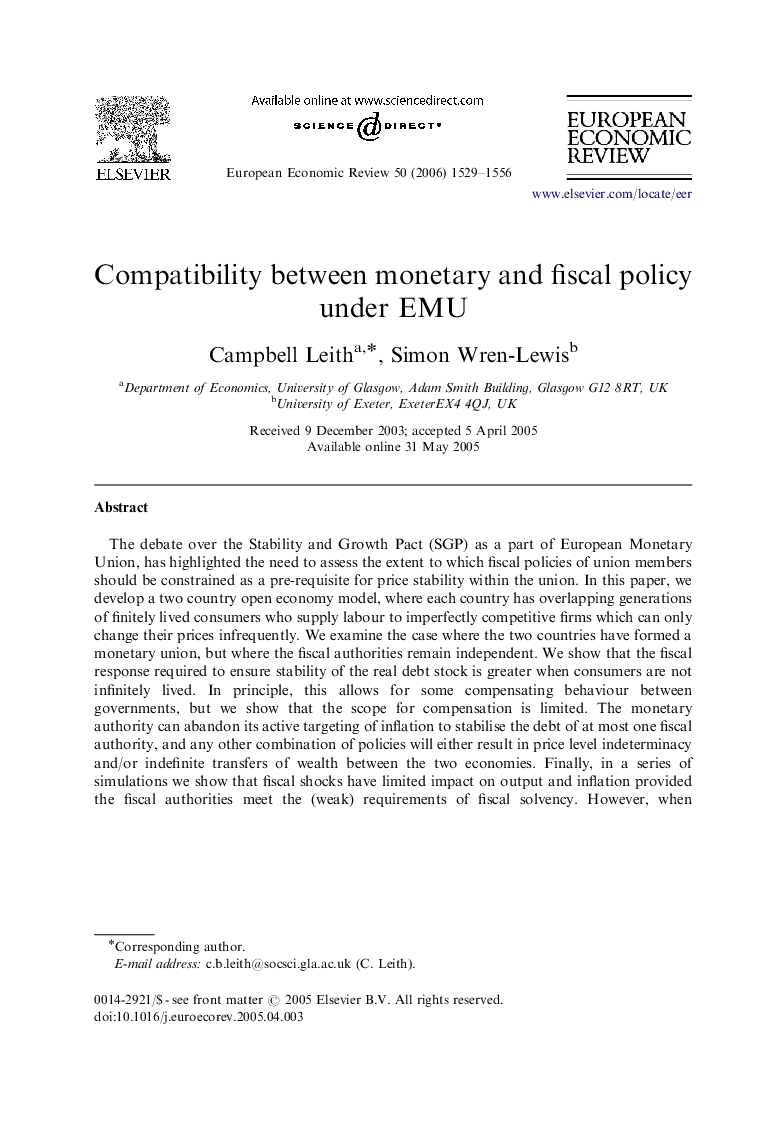| Article ID | Journal | Published Year | Pages | File Type |
|---|---|---|---|---|
| 5067691 | European Economic Review | 2006 | 28 Pages |
The debate over the Stability and Growth Pact (SGP) as a part of European Monetary Union, has highlighted the need to assess the extent to which fiscal policies of union members should be constrained as a pre-requisite for price stability within the union. In this paper, we develop a two country open economy model, where each country has overlapping generations of finitely lived consumers who supply labour to imperfectly competitive firms which can only change their prices infrequently. We examine the case where the two countries have formed a monetary union, but where the fiscal authorities remain independent. We show that the fiscal response required to ensure stability of the real debt stock is greater when consumers are not infinitely lived. In principle, this allows for some compensating behaviour between governments, but we show that the scope for compensation is limited. The monetary authority can abandon its active targeting of inflation to stabilise the debt of at most one fiscal authority, and any other combination of policies will either result in price level indeterminacy and/or indefinite transfers of wealth between the two economies. Finally, in a series of simulations we show that fiscal shocks have limited impact on output and inflation provided the fiscal authorities meet the (weak) requirements of fiscal solvency. However, when monetary policy is forced to abandon its active targeting of inflation, then fiscal shocks have a much greater impact on both output and inflation.
